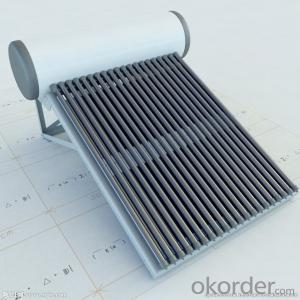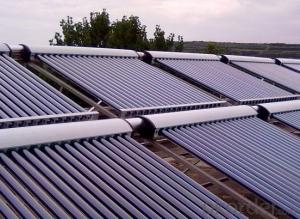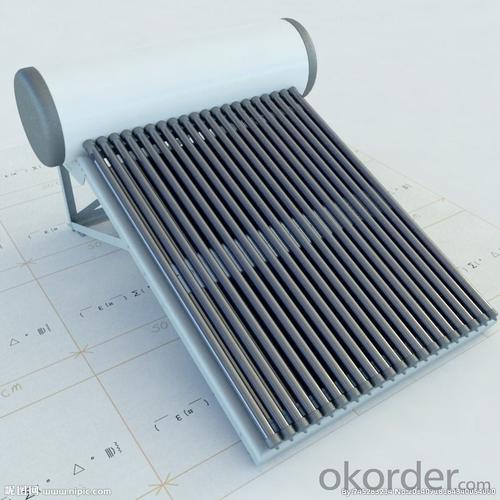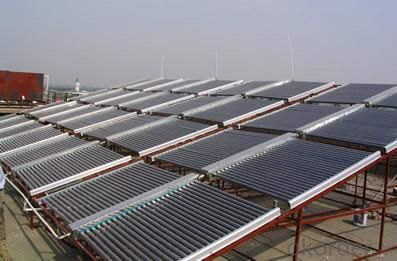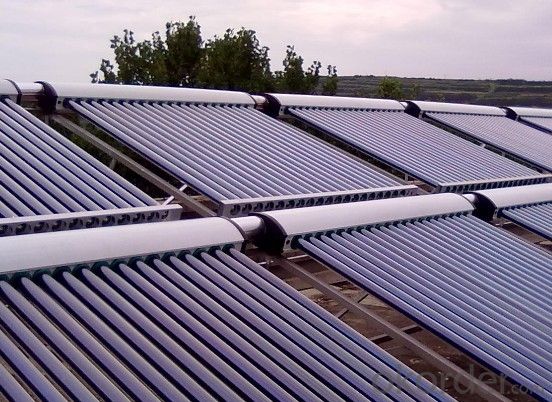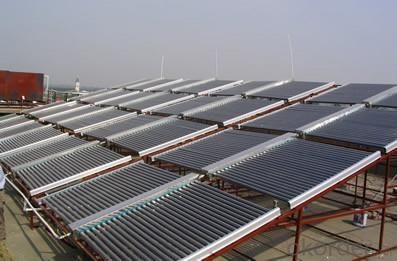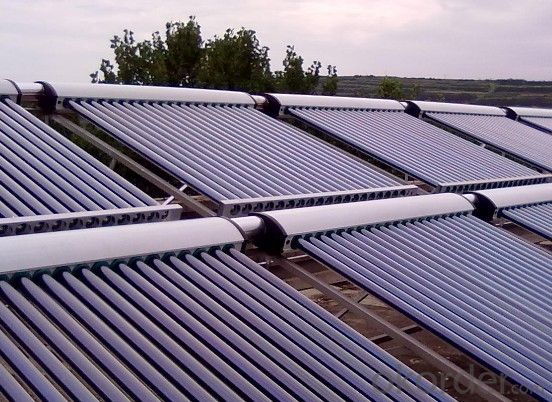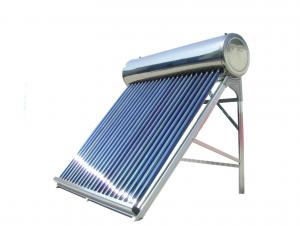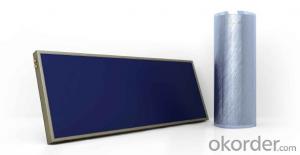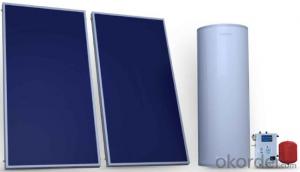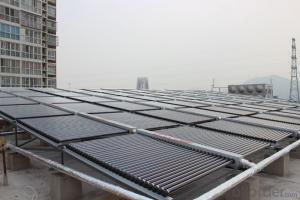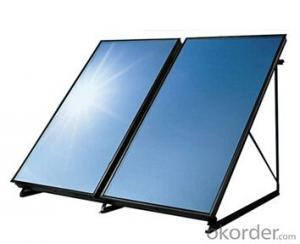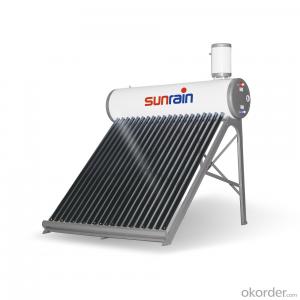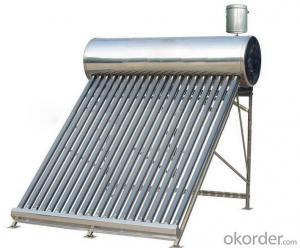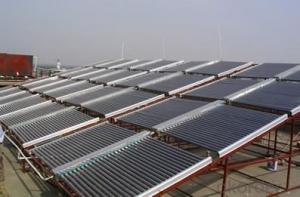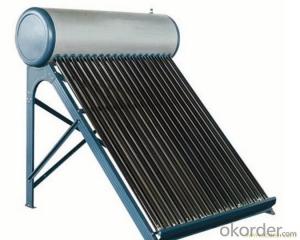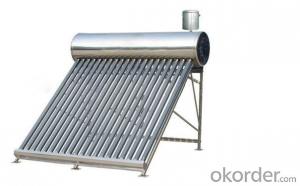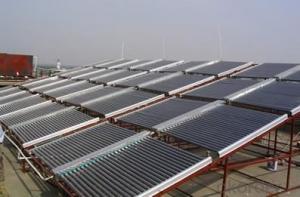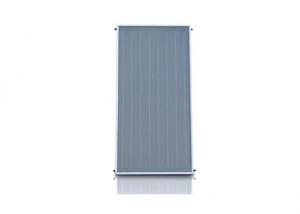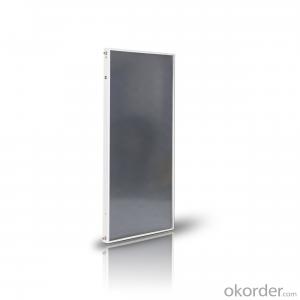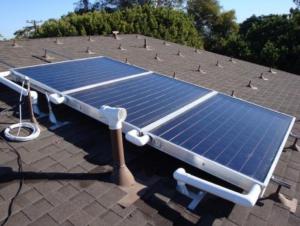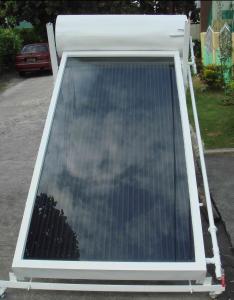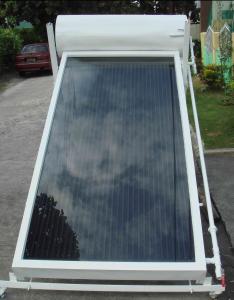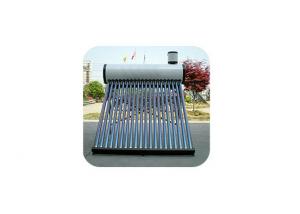28tube Non-Pressure Solar Water Heater Heating Element Collector
- Loading Port:
- China main port
- Payment Terms:
- TT OR LC
- Min Order Qty:
- 10 set
- Supply Capability:
- 10000 set/month
OKorder Service Pledge
OKorder Financial Service
You Might Also Like
Introduction of Non-Pressure Solar Water Heater:
Non-pressure Solar Heater is one of the most economical solar water heating device with pretty high efficiency at the same time. It consists of hot water storage tank, solar vacuum tubes with mouth plug in storage tank, and bracket supporting tank and tubes.When cold water in evacuated tubes is heated with solar irradiation, as the specific gravities of hot water and cold water are different, hotter water goes upward to storage tank and colder water goes downward to glass tubes. through this continuous circulation, the cold water in storage tank will be gradually heated till sunset.
Solar water heaters working principle
1. The solar collector absorbs solar energy and transmits it to the solar water heater tank through circulation
2. When the temperature of the collector reaches the set value, the controller starts the circulation pump automatically
3. The circulation pump makes heat-conducting liquid circulate automatically
4. The heat-conducting liquid transfers heat to water by lower heat exchanger in the water tank.
5. When the temperature difference between solar collector and heat pipe solar water heaters tank doesn't reach the set value, the circulation pump will be shut automatically
6. In case the temperature of the water tank does not reach Tmax, Electric Heating Element will start to work automatically
Solar water heaters working station component:
1. Operating screen
2. Manometer
3. Pump speed adjust switches
4. Temperature difference circulation pump
5. Flow rate indicator
6. Return circuit connector
7. Safety valve
8. Expansion vessel connector9. Return circuit connector
10. Wall mounting
11. Expansion vessel:8L
12. Pressure resistance: 10 bar pressure for expansion vessel
Solar water heaters specification:
Description | solar water heaters |
Material of out manifold | 0.55mm thickness color steel/ fluorine carbon steel |
Material of inner tank | Food grade 2.0 mm thickness SUS304 stainless steel |
Tank insulating layer | 40mm 45kg/m³ high-density polyurethane foamed |
Inlet and outlet hole | Male G1'' |
Max pressure | 0.6 Mpa |
Solar collector tube | 3.3 Borosilicate glass with N/Al coating |
Thickness of glass tube | 1.6mm |
Vacuum tube tightness | P≤0.005 Pa |
Absorption | as=0.93-0.96 (AM1.5) |
Emission ratio | εh=0.04-0.06 (80C±5C) |
Idle sunning property parameters | Y=220~260m2.C/KW |
Average heat loss coefficient | ULT=0.6~0.7W/(m2.C) |
Bracket: | 2.0mm thickness aluminum alloy |
Tank weight | 75KGS |
Tank size | 560mm Dia x 1810mm Height |
Tank capacity | 300L |
Solar collector | 2pcs 58x1800x15tube solar collector |
Absorber area | 2.811 m² |
Working station | SP116 working station |
Heat exchanger length | Upper:12m, Underside:18m |
Solar water heaters details show:
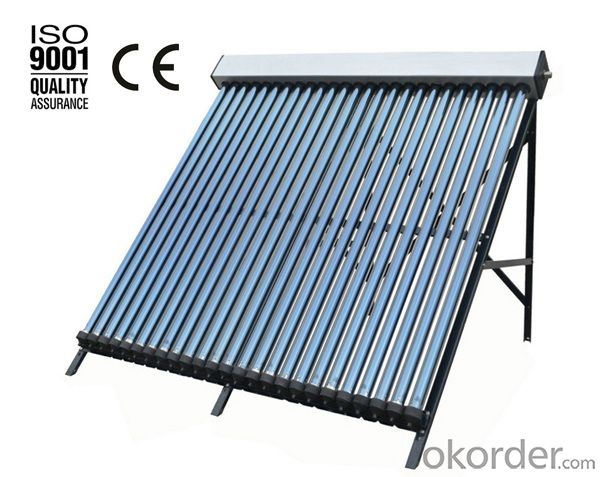
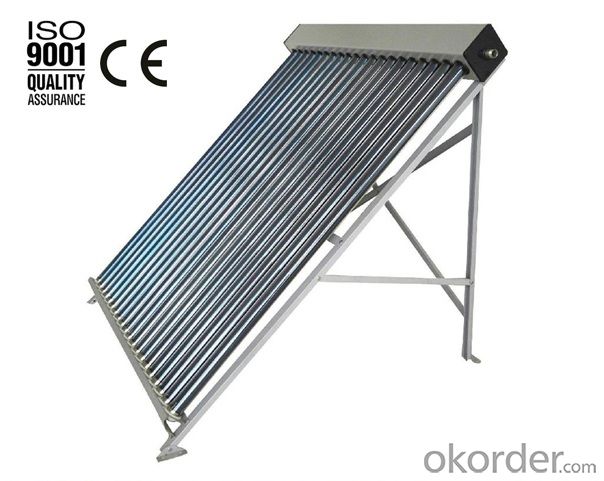
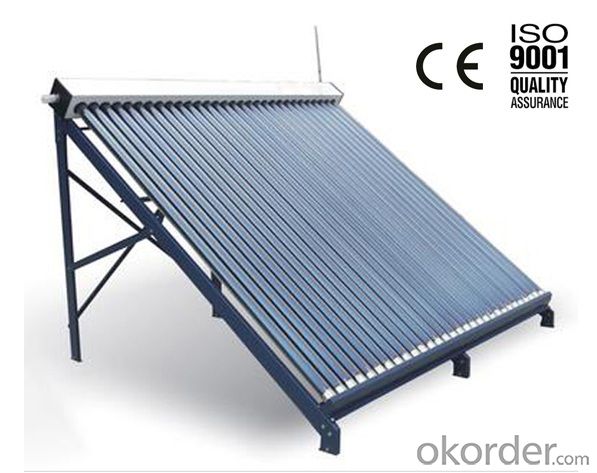
Benefits of this kind of solar water heaters:
1. Prolong the life of your existing water heater
2.Costs less than an electric, gas or oil water heater
3.No maintenance required
4.Lasts longer than a traditional hot water heater
5.Reduce your water heating costs
- Q: What is the expected payback period for a solar water heater in a residential setting?
- The expected payback period for a solar water heater in a residential setting can vary depending on several factors such as the initial cost of installation, local energy prices, and the amount of hot water used by the household. On average, however, it is estimated that the payback period for a solar water heater ranges from 3 to 7 years, after which the energy savings from reduced electricity or gas bills start to outweigh the initial investment.
- Q: Can a solar water heater be used in areas with limited access to energy-saving technologies?
- Yes, a solar water heater can be used in areas with limited access to energy-saving technologies. Solar water heaters rely on sunlight to heat water, so as long as there is sufficient sunlight available, they can effectively provide hot water without relying on conventional energy sources. This makes them a viable and sustainable option for areas with limited access to energy-saving technologies.
- Q: How does the cost of a solar water heater compare to traditional water heaters?
- The price of a solar water heater can differ depending on various factors such as its size, brand, and installation requirements. Typically, the initial cost of a solar water heater is higher compared to that of a conventional water heater. The average price range for a solar water heater, including installation, is between $2,000 and $5,000. On the other hand, traditional water heaters, including installation, can range from $500 to $1,500. Nevertheless, when considering long-term expenses, solar water heaters are usually more cost-effective. They utilize sunlight as an energy source to heat water, which means they rely on a free and renewable source of power. This results in reduced energy consumption and lower utility bills. In contrast, traditional water heaters depend on electricity or gas, leading to higher energy costs in the long run. Furthermore, solar water heaters tend to have a longer lifespan compared to traditional ones. While conventional water heaters typically last around 10-15 years, solar water heaters can last up to 20-30 years with proper maintenance. This extended lifespan contributes to additional savings over time, as traditional water heaters may require replacement sooner. Additionally, there are various federal, state, and local incentives and tax credits available for solar water heaters. These further decrease the overall cost, helping to offset the initial investment and making solar water heaters more affordable in the long term. To summarize, although the upfront cost of a solar water heater is higher than that of a traditional water heater, the long-term cost savings, energy efficiency, and extended lifespan make solar water heaters a more economically advantageous choice. Moreover, the availability of incentives and tax credits can help mitigate the initial investment, making solar water heaters a financially viable and environmentally friendly option.
- Q: How does a solar water heater prevent freezing in cold climates?
- A solar water heater prevents freezing in cold climates by using a combination of insulation, antifreeze, and temperature sensors. The system is designed to circulate a mixture of water and antifreeze through the solar collectors, which absorb heat from the sun to warm the water. The collectors are insulated to minimize heat loss, and the system is equipped with sensors that detect when the temperature drops below a certain level. When this happens, a pump is activated to circulate the antifreeze mixture through the collectors, preventing the water from freezing and ensuring continuous operation even in cold weather.
- Q: Can a solar water heater be used in areas with high levels of noise pollution?
- Yes, a solar water heater can still be used in areas with high levels of noise pollution. Noise pollution does not directly affect the functionality or efficiency of a solar water heater. Noise pollution mainly refers to excessive noise coming from vehicles, machinery, or human activities, which can be a nuisance for residents in those areas. However, solar water heaters do not emit any noise during their operation as they solely rely on sunlight to heat the water. Therefore, noise pollution should not pose a problem for the installation or operation of a solar water heater in areas with high levels of noise pollution.
- Q: Can a solar water heater be used in conjunction with a rainwater harvesting system?
- Yes, a solar water heater can be used in conjunction with a rainwater harvesting system. The rainwater collected can be used as the water source for the solar water heater, reducing the reliance on other water sources and increasing the overall sustainability of the system.
- Q: How much space is required for storing hot water in a solar water heater system?
- The amount of space required for storing hot water in a solar water heater system depends on the size and capacity of the system. Generally, solar water heater systems include a storage tank that can range in size from 50 to 120 gallons or more. However, it is important to note that the space needed may vary based on the specific design and configuration of the solar water heater system.
- Q: Can a solar water heater be used in areas with air pollution?
- Yes, a solar water heater can be used in areas with air pollution. While air pollution may affect the efficiency of solar panels to some extent, it does not render them completely ineffective. Solar water heaters can still harness solar energy and heat water using sunlight, even in areas with air pollution. However, regular maintenance and cleaning of the solar panels may be required to ensure optimal performance.
- Q: Can a solar water heater be used in areas with limited access to financing options or loans for renewable energy projects?
- Yes, a solar water heater can certainly be used in areas with limited access to financing options or loans for renewable energy projects. One of the key advantages of solar water heaters is that they are relatively affordable and have a quick payback period, making them an attractive option for individuals or communities with limited financial resources. Solar water heaters are simple and low-cost technologies that can be easily installed and maintained. They do not require expensive infrastructure or complex financing arrangements. In fact, many DIY solar water heater designs exist, allowing people to build and install their own systems using locally available materials. Furthermore, solar water heaters have been widely adopted in developing countries where access to financing options for renewable energy projects is limited. In these areas, governments, non-profit organizations, and international development agencies often provide subsidies, grants, or technical assistance to support the installation of solar water heaters. These initiatives aim to reduce reliance on fossil fuels, alleviate energy poverty, and provide affordable and sustainable hot water solutions. Moreover, solar water heaters can significantly reduce energy costs in the long run, as they use free and abundant solar energy to heat water. This makes them a cost-effective alternative to traditional water heating methods, such as electric or gas-powered heaters. By reducing energy expenses, individuals or communities can allocate their limited financial resources to other pressing needs or invest in other sustainable development projects. In conclusion, solar water heaters can be an ideal solution for areas with limited access to financing options or loans for renewable energy projects. Their affordability, simplicity, and potential for cost savings make them accessible and practical even in resource-constrained settings. Additionally, governmental and non-governmental initiatives often exist to support the adoption of solar water heaters in these areas, further facilitating their implementation and promoting sustainable energy practices.
- Q: How efficient are solar water heaters?
- Solar water heaters are highly efficient in converting sunlight into heat energy to warm water. On average, they can be up to 80% efficient, significantly reducing energy consumption and costs compared to traditional water heating methods. However, the efficiency can vary depending on factors like climate, size of the system, and usage patterns.
Send your message to us
28tube Non-Pressure Solar Water Heater Heating Element Collector
- Loading Port:
- China main port
- Payment Terms:
- TT OR LC
- Min Order Qty:
- 10 set
- Supply Capability:
- 10000 set/month
OKorder Service Pledge
OKorder Financial Service
Similar products
Hot products
Hot Searches
Related keywords
